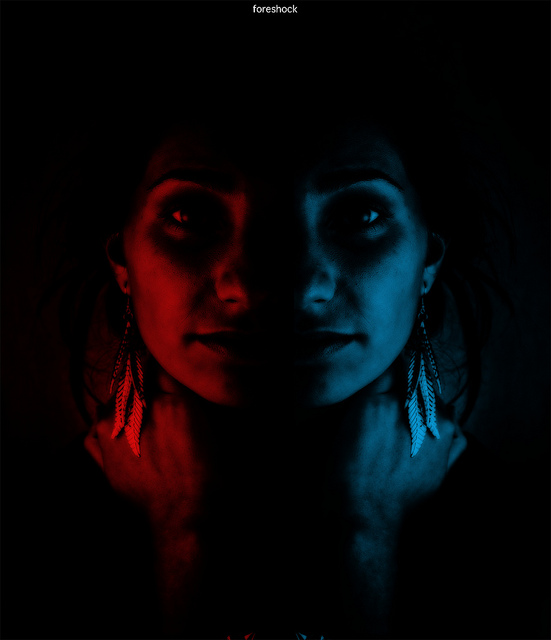It hit me like a bus carrying illegal immigrants going the wrong way on the road to “freedom”—we have totally gotten it all Wrong. (Wrong with a capital W.)
The concept of karma is not what the popular spiritualists propose, that “we reap what we sow,” otherwise known as the “agricultural interpretation of Karma.” It also isn’t the popular corollary, “no good deed goes unpunished.” We try to blame challenges and disappointing results on past behavior, whether the behavior happened in this life or previous lifetimes.
This misses the whole point of our experiences.
When one considers the karmic explanation of why things happen, there are lots of inconsistencies with this belief. First, if you reap what you sow, why do bad things happen to good people? Conversely, why do wicked people succeed in life? Because they were good in some prior life? Second, if you reap what you sow, how do you balance out the good stuff from the bad stuff? Is it an issue of accounting? Do we need to hire a spiritual CPA? No one is perfectly pure or perfectly evil, so how does karma sort itself out? It is hard to accept that life is a carousel of good deeds being rewarded and bad deeds being punished.
When I was growing up, I was taught a Christian version of karma that was more fatalistic than the “what goes around comes around” version we have today. The version I got was that if you do good deeds, the great CPA in the sky might let me into heaven, but one bad deed would banish me to Hell. There was the notion that the good might outweigh the bad, but strict Christianity was pretty pessimistic about that equation.
Let’s consider “victim consciousness” for a moment. This is the idea that things happen “to” me and not “for” me. If you follow that concept to its logical conclusion, karma really is for losers. After all, when bad things happen to us, isn’t it simply victim mentality to blame it on some past life or past action that we don’t even remember? What good does that do anyone? Is the sum total of our existence a conveniently concocted perception of victimized lack of control?
I think we have much more control over what happens in our lives than many people want to believe. People don’t want to be responsible for the challenges that they face and would rather be victims of someone else’s actions, even if it was themselves.
I think that we are each powerful beings who create what we experience—not as some direct result of prior actions—but for the express purpose of evolution and spiritual growth and well timed life lessons.
I have had quite a process of letting go over the last three years.
I have experienced the loss of an exorbitant amount money, relationships, my father, my self esteem and my pride. Whenever we experience trauma, pain, loss or unpleasant circumstances, we have a choice to dig deep and find out what the lesson is or we can shrug our shoulders and blame it on karma.
I invested all of my savings in businesses that came on recommendations from someone I trusted who then betrayed me. It was blindingly crushing, and even more so when I saw my own pattern of disempowerment in play again. When those businesses failed, I didn’t just think I was paying off karma. It took me a while but I realized that I had created that situation, even the betrayal, and realized that I had a habit of disempowering myself to people I perceive as authority figures (bosses, spouses, judges, or gurus).
It is like pulling the rug out from under oneself to see if we can walk on water yet. We create experiences to learn lessons that bring us closer to our divinity. It has nothing to do with karma.
I fell in love with a woman who didn’t feel the same way about me. Somehow that discrepancy fueled my desire and I tried to buy her by giving expensive gifts, taking her to exotic islands and paying for everything she needed. When she went out with an old boyfriend, I was destroyed. This was not the first time my heart was broken, but again, I realized I created this situation, not karma. I wasn’t ready to walk on water, obviously.
In both of those experiences I ignored multiple red flags and warnings from friends who had only my best interest in mind, because I chose to do so. I lied to myself about these situations because I was really good at lying to myself. In my early 20s I learned how to lie to myself as a defense mechanism to avoid standing up for myself because it was easier to give in.
I became a lawyer to satisfy my father when I didn’t want to be a lawyer. I gave my guru money rather than risk being cast aside. I didn’t break up a doomed (non-)romance because I was hoping she would change. It was just easier to give in. So I have committed to being honest with myself for a change. These are proving to be the most valuable lessons I could give to myself.
Through these experiences I have realized how powerful I am and I have committed myself to creating positive experiences, not subconsciously committing negative ones. I will say “no” if the circumstances don’t feel acceptable. I listen to my instincts, especially when that voice in the back of my mind is screaming “don’t do it!” and my stomach is doing flip flops. I have stopped pushing the rope (Cowboy term, yes I’ve been that too) and tying to make things happen when the universe is telling me it isn’t the right time.
I am happy with who I am and have quit trying to be someone I am not to please or manipulate people. I believe in myself and love myself enough to stop letting people use and abuse me.
There is a huge difference between being the creator of a lesson in order to grow and evolve, and being the victim of karma.
I believe that I created all of my experiences for a specific purpose (to take responsibility), and it was certainly not the result of some prior action or belief (or some past life). It certainly would have been easier to blame it all on karma, but I wouldn’t have learned anything if I had done that. Karma is really spiritual denial because I can blame it on the past. The concept of karma avoids taking responsibility of the present moment, because we focus on the past. When we let go of the past and accept everything that happens as a gift, we stop living in the past.
Seeing every experience as a positive experience is not the easiest choice, far from it, mainly because I have to dig deep to find the lesson, like finding a pearl in an oyster at the bottom of the ocean.
So don’t be so quick to pass off experiences as a result of something done in the past that we are meant to pay for now. We are more powerful than that. Look at your experiences as your creation for the purpose of being a stronger, wiser, more divinely oriented person. Lessons are for you and in your favor, always. Karma has nothing to do with it. If we focus on what is, we can’t focus on what isn’t.
Be strong, be brave and demand that we grow. We are the butterfly struggling to break the chrysalis. Don’t blame it on the caterpillar.
Author: James Robinson
Editor: Catherine Monkman
Photo: Gianfranco Blanco/Flickr







Read 1 comment and reply